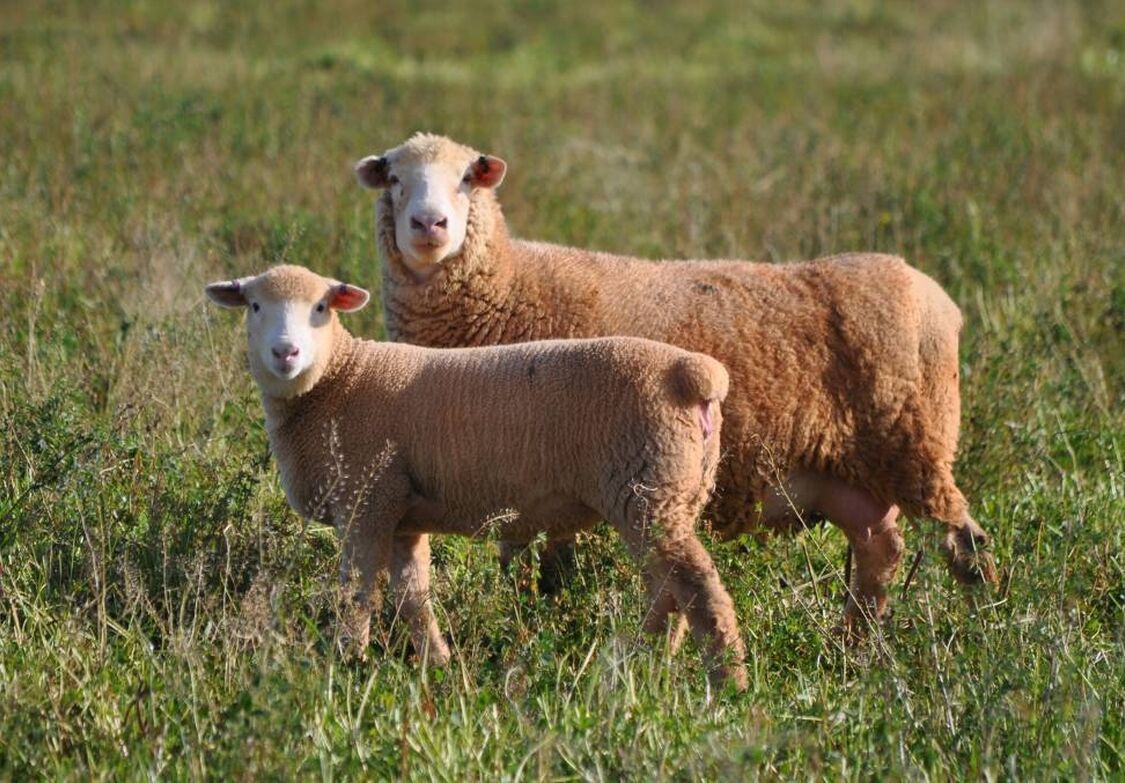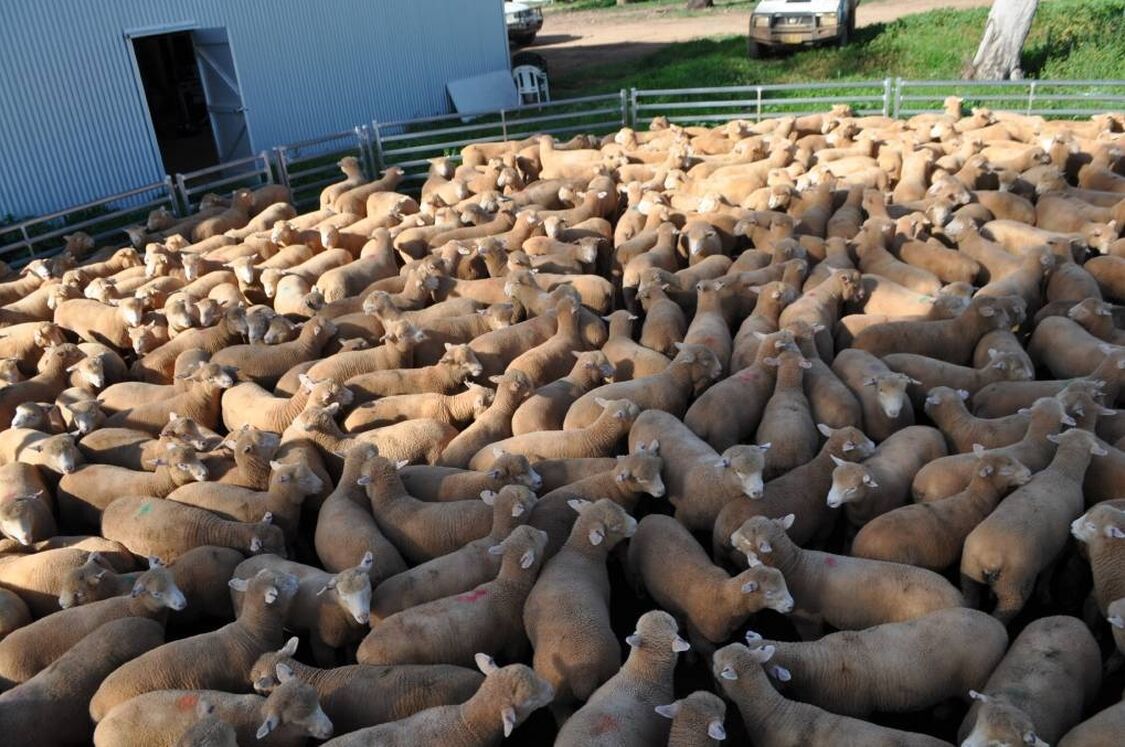Courtesy of Ruth Schwager, The Land
STUDS have been carefully selecting genetics based on visual assessment and Australian Sheep Breeding Values for many years, but the Poll Dorset breed is taking the next step, by analysing on-farm and carcase performance to help producers make more informed breeding decisions.
Twelve Poll Dorset studs from across the country are testing their genetics in the Bowan Park progeny trial, run by NSW stud Ridgehaven.
The trial, which began last year, offers Poll Dorset breeders the opportunity to measure their genetics for key commercial traits, with on-farm and carcase data delivered back to participants.
The trial began as a side project to Ridgehaven's own sire benchmarking program, which has helped the stud improve carcase yield and intramuscular fat over the past four years.
"We developed the progeny trial so that other breeders can get the same benefit as we have," Ridgehaven's Isabele Roberts said.
The Bowan Park 2020 cohort includes 14 sires from 12 studs - Faraday Park, Wunnamurra, Springwaters, Shirlee Downs, Hillden, Hillden (contributed from Ilfracombe) Derrynock (contributed from Zacman), Gooramma, Pepperton, Rangeview, Kurralea (contributed from Shirlee Downs), Yentrac (contributed from Abelene Park), and Karawina (historical sire) - and measures on-farm performance through regular weight recording, along with carcase analysis.
This project going to give us the capacity to understand more about growth curves of Poll Dorset sheep, and how different genetic lines grow. This fills a knowledge gap for many stud producers and can explain growth patterns in a commercially oriented setting.- Trial coordinator Isabele Roberts
"We now have 14 external sires in that group, with 500 lambs to go through to carcase testing."
University of Sydney is involved (as part of a larger Meat and Livestock Australia funded project), supplying a walk-over weighing system, which allows the trial to record daily weights using electronic identification tags.
The Ridgehaven team weighs all lambs at birth and four weeks, 10 weeks; 14 weeks, and 17 weeks. These critical age stages provide an understanding of growth rates, and the influence of genetics and nutrition.
The live walk-over weigh provides daily growth charts to see when the growth rates change and if environmental conditions are affecting the lambs.
"Sydney Uni is looking at on-farm technology systems, and how they can be implemented in a commercial setting, and we're getting valuable data at the same time," Mrs Roberts said.
"This project going to give us the capacity to understand more about growth curves of Poll Dorset sheep, and how different genetic lines grow.
"This fills a knowledge gap for many stud producers and can explain growth patterns in a commercially oriented setting."
Participants receive on-farm performance reports with weight records, and have the opportunity to view lambs at an open day prior to processing, around 17 weeks, after a final weigh and muscle scanning.
On-farm measurements and full carcase data, including overall yield, intramuscular fat, and lean meat yield, are provided to participating studs, which they can use to support breeding decisions within their own operations.
"Many of the participating studs have never had this kind of information before," Mrs Roberts said.
"Different sires are performing really well in different traits - birth ease, growth, muscle shape, conformation, wool type, carcase yield, IMF - each sire has some attribute that puts his progeny at the top end.
"It's another piece of information that people can use in their breeding programs."
Before making the trial available to other studs, Ridgehaven has held a successful program with its own sheep, lifting the average carcase yield from 51.2 per cent in 2017 to 53.5pc in 2019, and the highest yields from 57pc to 62pc, by removing sires with lower yields.
As with most research projects, there is always something more to be done.
The next step is to replicate the current trial design with first-cross ewes using the same sires.
"Those second-cross lambs would be 100pc commercial animals, which could give us an understanding about the flow on of purebred results with on-farm performance traits and carcase traits to crossbred lambs," Mrs Roberts said.
Another element to the progeny trial could be testing feed conversion, with the help from Crown Agriculture's MASTERyard facility at Cudal, which is next door to Ridgehaven's base.
"They have a set up which looks at feed conversion based on a specific daily ration, so we could do a feed conversion trial as well which gives us an understanding of a lamb's feedlot capacity," Mrs Roberts said.
"If we can identify particular genetics that are better feed converters, producing a high yielding, high quality carcase, on less food, that's fantastic."

BREED ANALYSIS: A nine-week-old lamb, bred as part of the Bowan Park Poll Dorset progeny trial.
